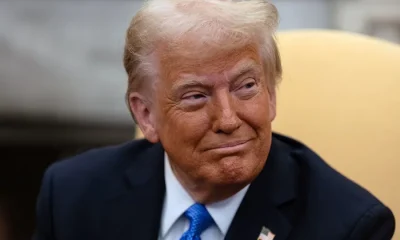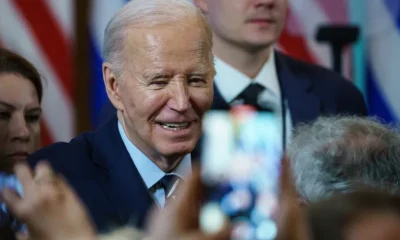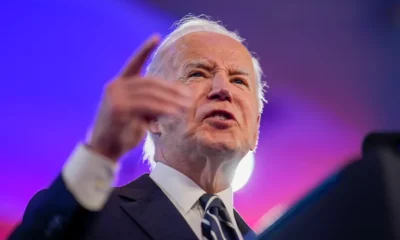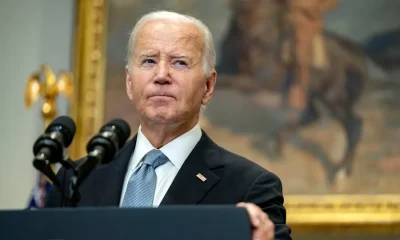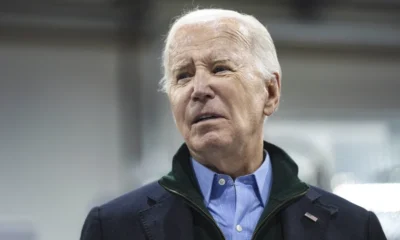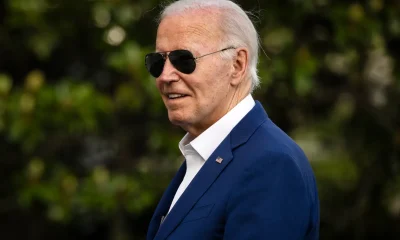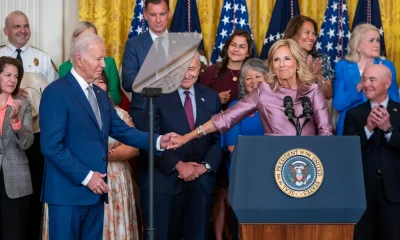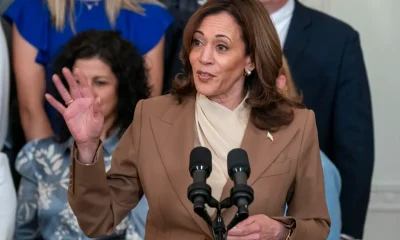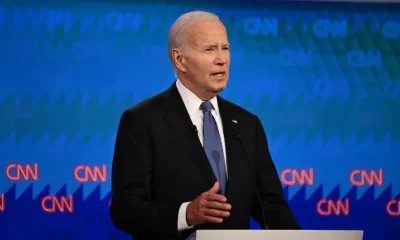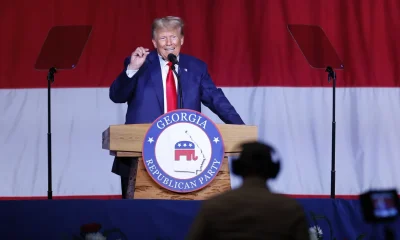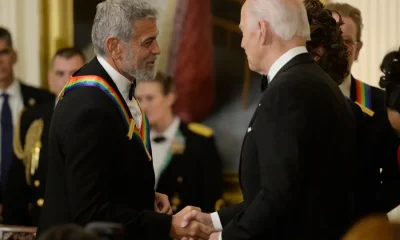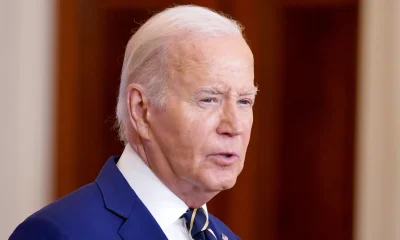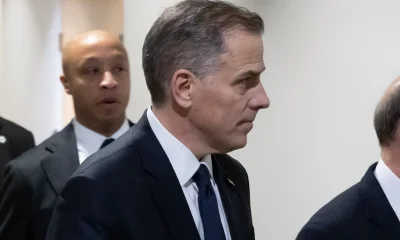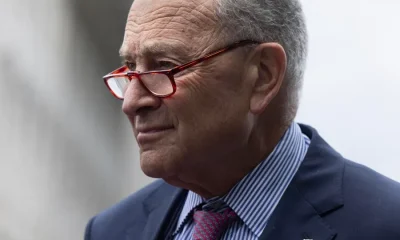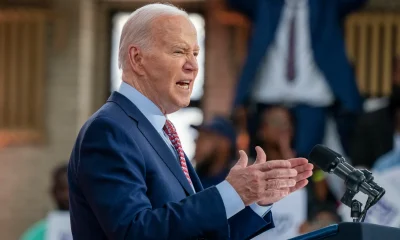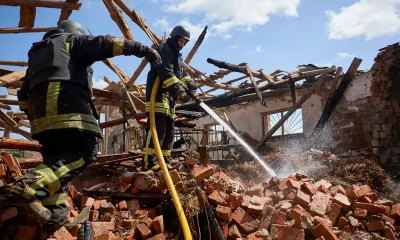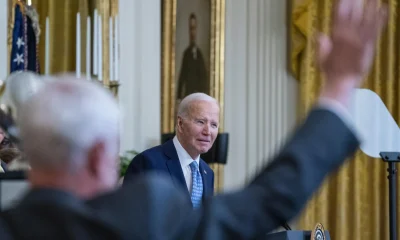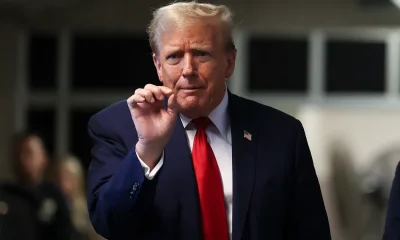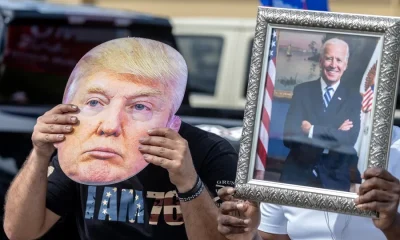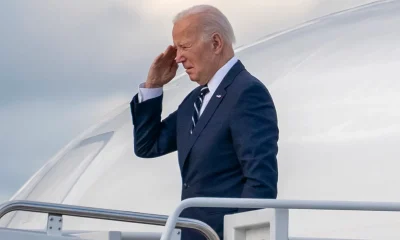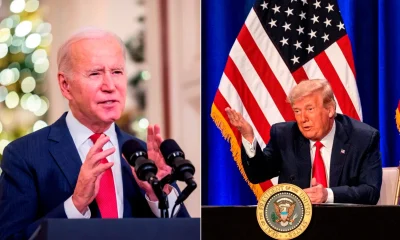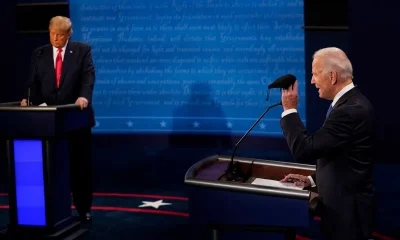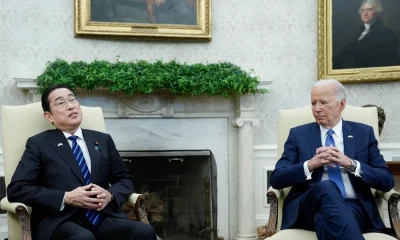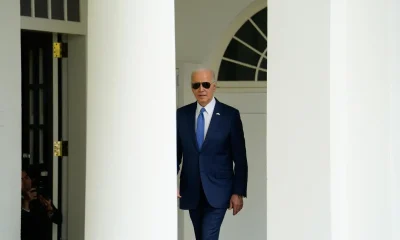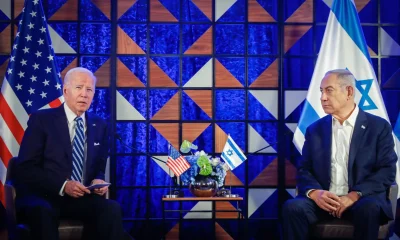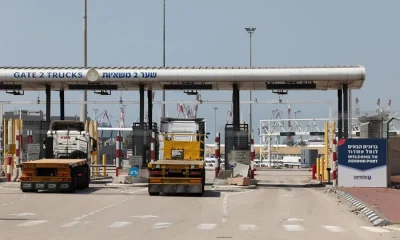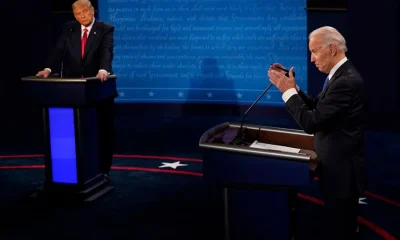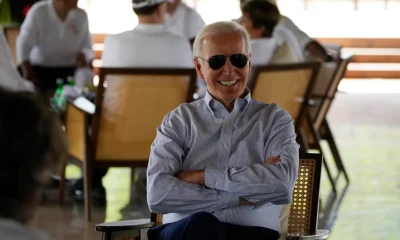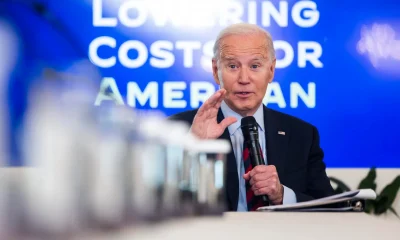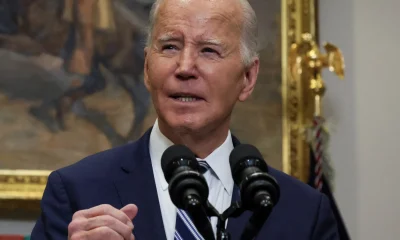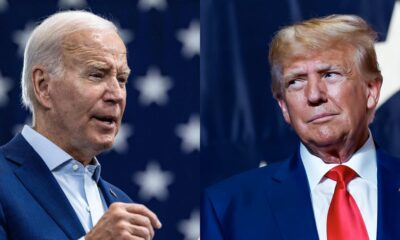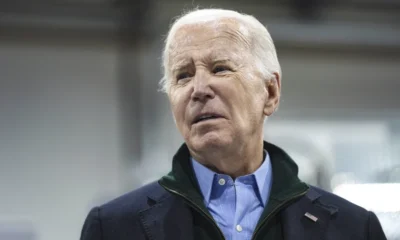International
US Supreme Court hears challenge to Biden admin immigration policy
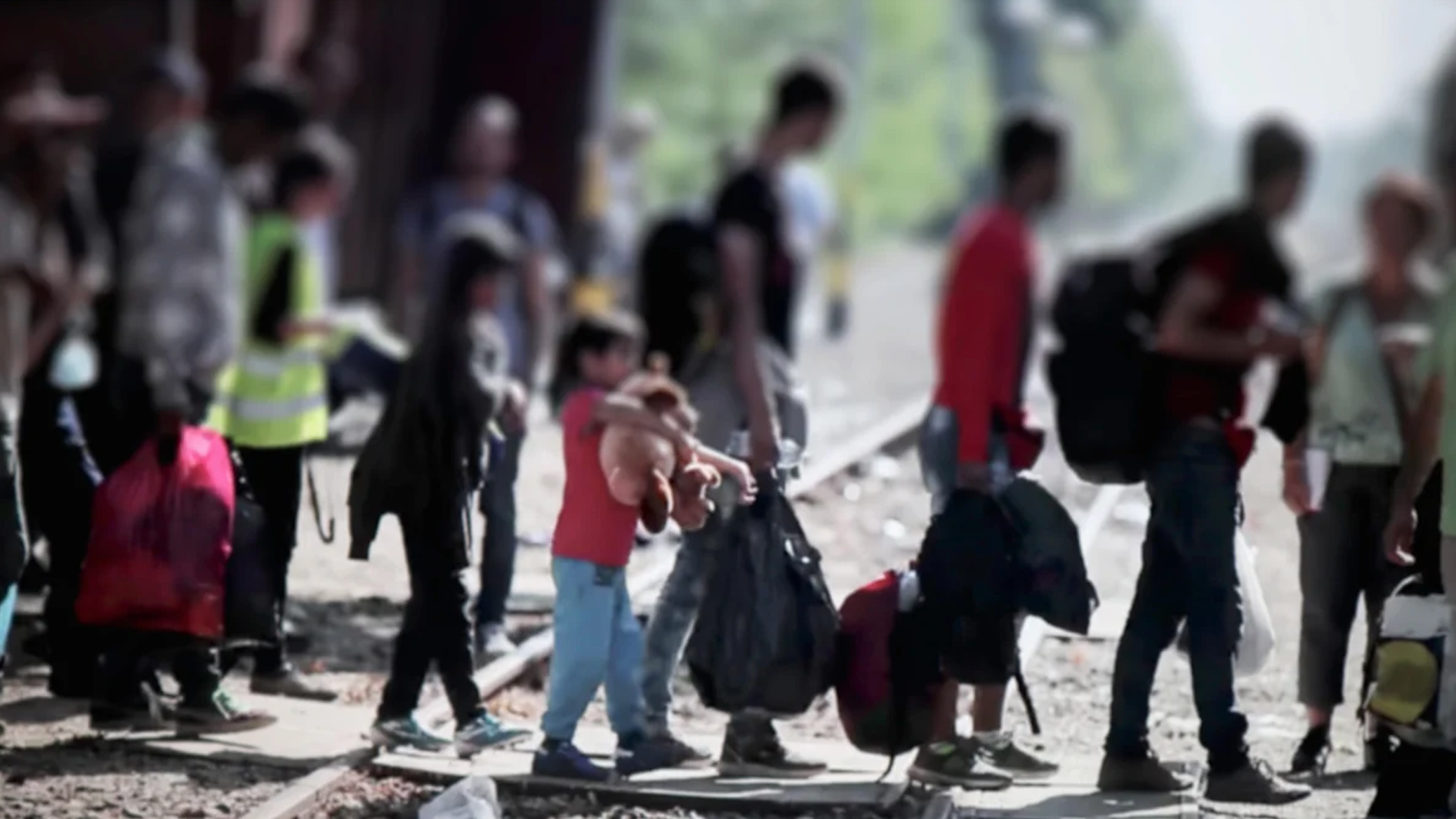
| By AFP | Chris Lefkow |
The US Supreme Court heard arguments on Tuesday in a case brought by border state Texas challenging the federal government’s right to decide which undocumented migrants should be targeted for deportation.
Defending the Biden’s administration’s policy, Solicitor General Elizabeth Prelogar said the federal government has to prioritize its efforts because it does not have the resources to pursue the 11 million undocumented “noncitizens” in the country.
“This is not about reducing enforcement of the immigration laws, it’s about prioritizing limited resources to say go after Person A instead of Person B,” Prelogar said.
After more than two hours of arguments, the nine justices on the conservative-majority court did not appear to fall clearly on one side or the other of the case, which also raises thorny questions of the legality of state challenges to federal policies.
“It means that states can challenge the federal government on any policy with which they disagree,” Prelogar said. “Federal courts should not be transformed into open forums for each and every policy dispute between the states and the national government.”
Texas filed suit after the Department of Homeland Security, in a September 2021 memo, instructed US Immigration and Customs Enforcement (ICE) to concentrate expulsion efforts on persons who “pose a threat to national security, public safety, and border security.”
“We do not have the resources to apprehend and seek the removal of every one of these noncitizens,” Homeland Security Secretary Alejandro Mayorkas said. “Therefore, we need to exercise our discretion and determine whom to prioritize for immigration enforcement action.”
Texas solicitor general Judd Stone said prioritizing expulsion of undocumented migrants to certain categories of persons would impose costs on the state, which shares a border with Mexico and is an entry point for hundreds of thousands of immigrants every year.
“Texas suffers injuries, regardless of what it does, whether it detains, releases or paroles individuals because we have not only law enforcement costs, but social services costs and very serious threats of recidivism,” Stone said.
‘Zenith of federal power’
Elena Kagan, one of the three liberal justices on the court, appeared skeptical about the costs argument and the potential danger of limiting federal authority.
“Immigration policy is supposed to be the zenith of federal power,” Kagan said. “And instead, we’re creating a system where a combination of states and courts can bring immigration policy to a dead halt.
“We’re going to be in a situation where every administration is confronted by suits by states that can, you know, bring a policy to a dead halt, to a dead stop, by just showing a dollars worth of costs,” Kagan said.
Conservative Justice Brett Kavanaugh asked the Texas solicitor general what would happen if the court rules in favor of Texas, whose Republican governor has been sending busloads of immigrants to Democratic-ruled states.
“If you prevail here, what will happen?” Kavanaugh said. “That’s a concern because I’m not sure much will change because they don’t have the resources to change.”
The Biden administration’s move to target individuals considered a threat to national security or public safety for deportation represented a shift from the policy of the administration of former president Donald Trump, which called for the expulsion of “all removable aliens.”
The Biden policy was immediately challenged by several Republican-led states as being too narrow and was blocked by a court in Texas.
The Supreme Court is expected to issue its ruling by the end of June.
International
Paraguay summons Brazilian ambassador over Itaipú espionage scandal
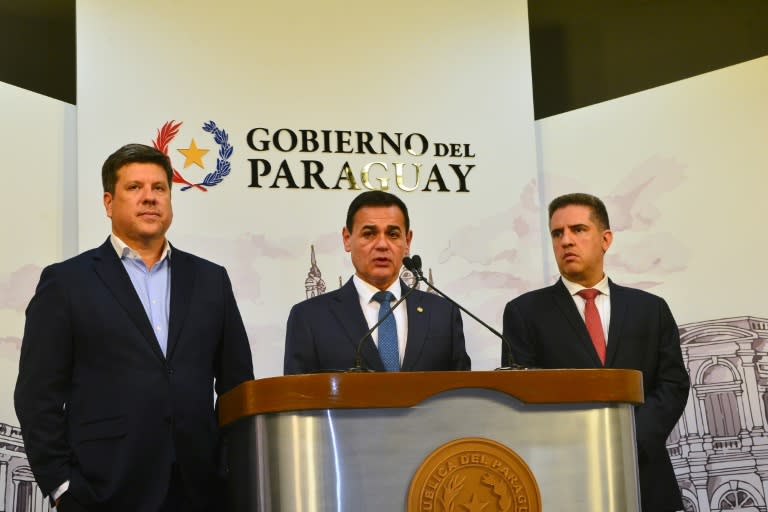
Paraguay summoned the Brazilian ambassador in Asunción on Tuesday to demand “explanations” and called its own representative in Brasília for consultations following Brazil’s acknowledgment of an espionage operation. The Brazilian government, led by President Luiz Inácio Lula da Silva, attributed the operation to the previous administration.
The surveillance effort aimed to uncover Paraguay’s position in now-suspended negotiations with Brazil regarding the pricing of electricity from the binational Itaipú hydroelectric plant, according to reports in the Brazilian press.
The Brazilian government “categorically denied any involvement in the intelligence operation,” stating in a Foreign Ministry communiqué on Monday that the espionage was carried out under former President Jair Bolsonaro’s administration (2019-2023).
“The operation was authorized by the previous government in June 2022 and was annulled by the interim director of the (state intelligence agency) ABIN on March 27, 2023, as soon as the current administration became aware of it,” Brazil’s government asserted.
Paraguay’s Foreign Minister Rubén Ramírez announced that Brazilian Ambassador José Antonio Marcondes de Carvalho was summoned “to provide detailed explanations” regarding the operation. Additionally, Paraguay recalled its diplomatic representative in Brasília “to report on aspects related to the intelligence activity conducted by Brazil regarding Paraguay’s government affairs.”
International
Elon Musk to step down as government advisor, per Trump insiders
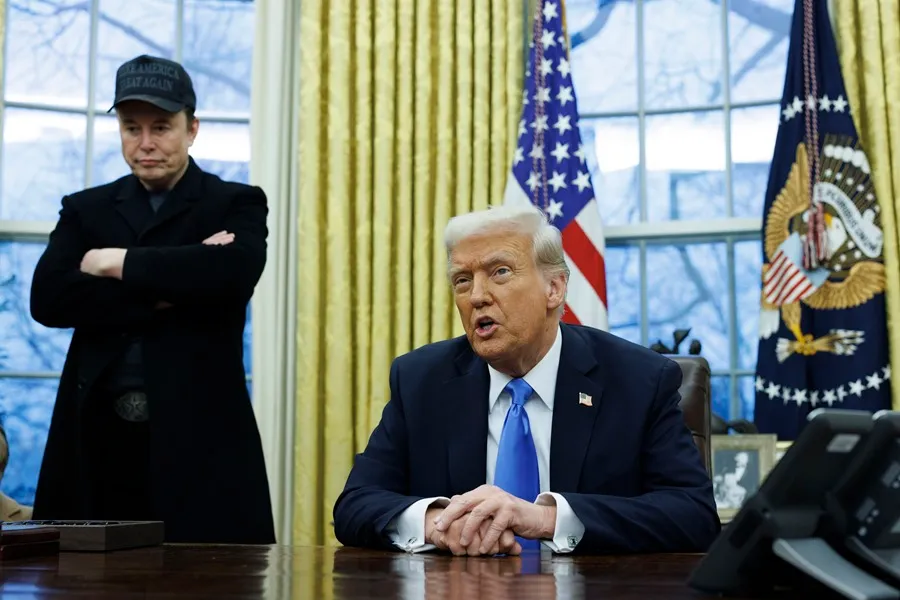
President Donald Trump has informed his inner circle that Elon Musk will be stepping down from his role as a government advisor, according to a report by Politico today.
Citing three individuals close to Trump, Politico states that the president is pleased with Musk’s leadership at the Department of Government Efficiency (DOGE), where he has implemented significant budget cuts. However, both have agreed that it is time for Musk to return to his businesses and support Trump from a different position outside the government.
A senior administration official told Politico that Musk will likely maintain an informal advisory role and continue to be an occasional visitor to the White House. Another source warned that anyone thinking Musk will completely disappear from Trump’s circle is “deluding themselves.”
According to the sources, this transition is expected to coincide with the end of Musk’s tenure as a “special government employee,” a temporary status that exempts him from certain ethics and conflict-of-interest regulations. This 130-day period is set to expire in late May or early June.
International
Milei vows to make Argentina so strong that Falkland Islanders “choose” to join

Argentine President Javier Milei reaffirmed his country’s claim over the Falkland Islands (known as the Islas Malvinas in Argentina) and praised the role of the nation’s armed forces during a ceremony marking the “Veterans and Fallen Soldiers of the Malvinas War Day,” commemorating 43 years since the 1982 conflict with the United Kingdom.
Argentina continues to assert sovereignty over the islands, arguing that Britain unlawfully seized them in 1833.
“If sovereignty over the Malvinas is the issue, we have always made it clear that the most important vote is the one cast with one’s feet. We hope that one day, the Malvinas residents will choose to vote with their feet and join us,” Milei stated.
“That is why we aim to become a global power—so much so that they would prefer to be Argentine, making deterrence or persuasion unnecessary. This is why we have embarked on a path of liberation, working to make Argentina the freest country in the world and once again the nation with the highest GDP per capita on the planet,” he added.
-

 Central America3 days ago
Central America3 days agoU.S. Homeland Security Secretary urges Mexico to strengthen Guatemala border
-

 Central America3 days ago
Central America3 days agoPanama grants Martinelli 72-hour extension to travel to Nicaragua
-

 International2 days ago
International2 days agoParaguay summons Brazilian ambassador over Itaipú espionage scandal
-

 Central America4 days ago
Central America4 days agoPanama police clarifies that Interpol alert for Martinelli is still pending
-

 International3 days ago
International3 days agoTrump urges Putin to reach peace deal
-

 International4 days ago
International4 days agoDeportation flight lands in Venezuela; government denies criminal gang links
-

 Sports2 days ago
Sports2 days agoFilipe Luis debuts as coach in Copa Libertadores with Flamengo
-

 Central America2 days ago
Central America2 days agoGuatemalan police officer killed in mob riots over baby kidnapping
-

 International2 days ago
International2 days agoElon Musk to step down as government advisor, per Trump insiders
-

 Sports2 days ago
Sports2 days agoVenezuela investigates 18 baseball players seeking asylum in Spain
-

 International2 days ago
International2 days agoMilei vows to make Argentina so strong that Falkland Islanders “choose” to join
-

 International2 days ago
International2 days agoICE agent’s arrest of suspect sparks controversy in Boston
-

 International2 days ago
International2 days agoÓscar Arias: Trump’s trade policies are a step backward














